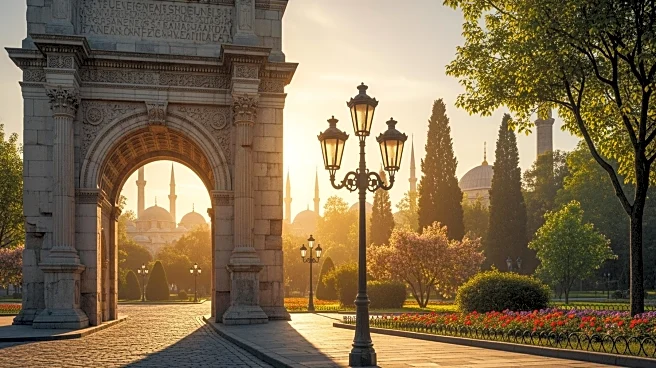Rapid Read • 8 min read
Shanghai's historical evolution from a fishing port to a world-class city has been driven by Chinese-Western trading relationships and abundant labor. The city emerged as a popular export center for the British East India Company in the 18th century, leading to the First Opium War and the establishment of foreign concessions. Throughout the 19th century, Shanghai developed impressive infrastructure, attracting foreign residents and becoming the wealthiest city in Asia by the 1920s. Despite challenges during World War II and the Cultural Revolution, Shanghai revived its economy post-1949, becoming the epicenter of China's ambitions to become a global economic powerhouse. Today, Shanghai is a modern megalopolis, balancing historical charm with rapid development.
AD
Shanghai's economic rise underscores its strategic importance in China's development and global influence. The city's ability to integrate foreign influences and foster industrial growth has positioned it as a leading financial center in Asia. Shanghai's historical openness to international trade and investment continues to drive its economic success, contributing to China's global influence. The city's cultural diversity and economic vitality attract tourists and investors, enhancing its role as a major urban center. Understanding Shanghai's evolution provides insights into China's broader economic strategies and international relations.
Shanghai is poised to continue its growth as a global financial hub, driven by strategic initiatives and international partnerships. The city's ongoing infrastructure development and cultural preservation efforts will enhance its appeal to tourists and investors. As China pursues further economic reforms, Shanghai's role in international trade and investment may expand, fostering innovation and collaboration. The city's ability to balance modernity with historical heritage will shape its future identity, influencing urban planning and cultural exchanges.
Shanghai's transformation reflects broader themes of globalization, cultural integration, and economic development. The city's ability to blend traditional and modern elements offers insights into the challenges and opportunities of urbanization. As Shanghai evolves, it faces questions about sustainability, cultural preservation, and social equity, prompting discussions on the ethical dimensions of development.
AD
More Stories You Might Enjoy












